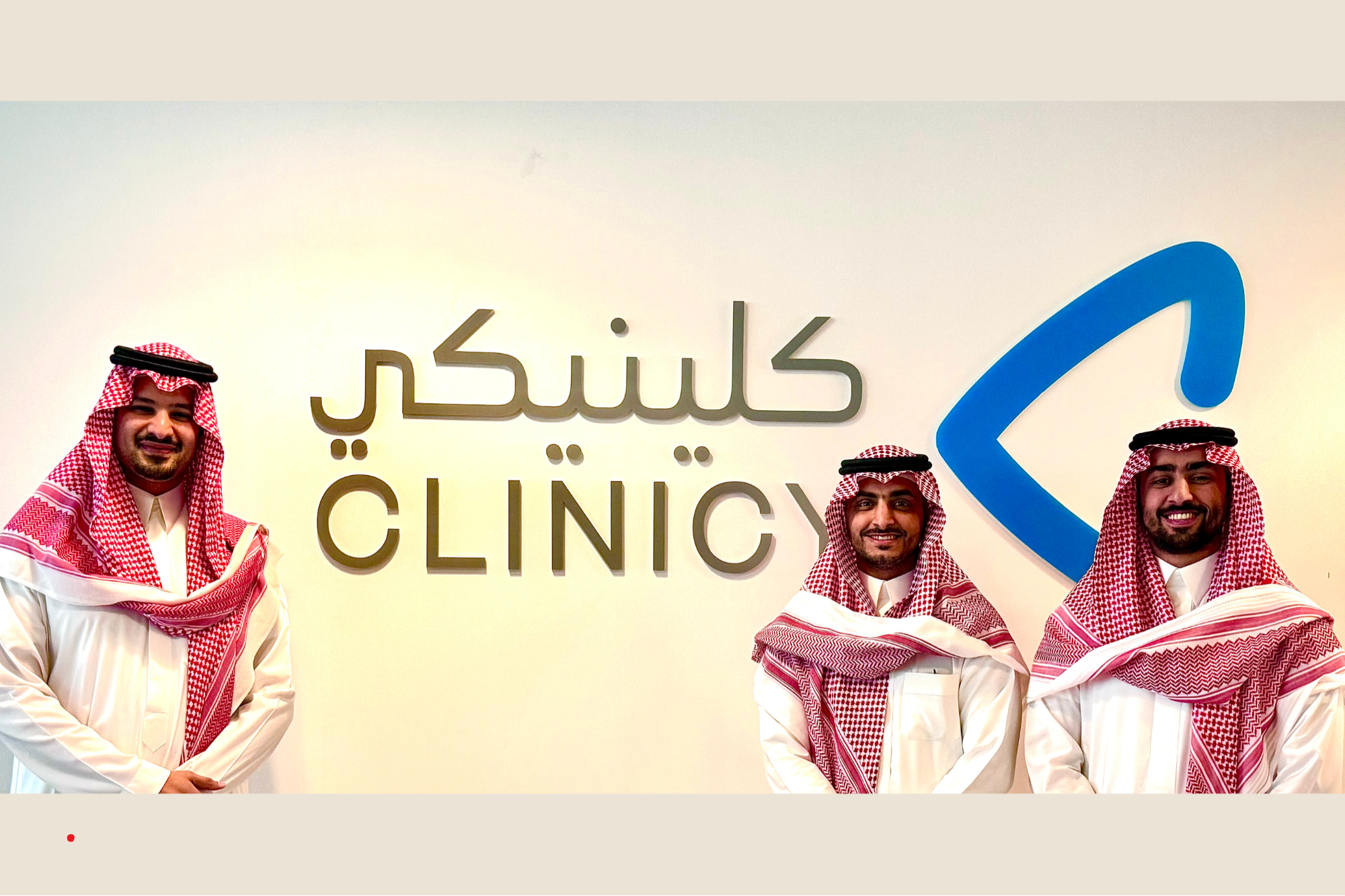Investing
“We Got Funded!” KSA-Based Healthtech Startup Clinicy Raises Undisclosed Series A Round With The Platform Already Serving One Million Patients By creating a more coherent ecosystem, the Clinicy team believes that their startup could create a more digitally agile medical industry within the Kingdom.

Entrepreneur
You’re reading Entrepreneur Middle East, an international franchise of Entrepreneur Media.
Saudi Arabia-based healthtech startup Clinicy has secured an undisclosed seven-figure US Dollar Series A funding in a round led by Middle East Venture Partners (MEVP), a UAE-headquartered venture capital (VC) firm that focuses on early and growth-stage tech startups. The round also saw the participation of Gate Capital, a UAE-based corporate finance and strategic advisory firm, as well as some of Clinicy’s existing Saudi-based investors such as Kafou Group, a multi-sector corporate development entity, and Fadeed Investment, an early-stage investment firm.
Launched by Prince Mohammed Bin Abdulrahman Abdullah Al Faisal, Abdullah bin Sulaiman Alobaid and Saud bin Sulaiman Alobaid, Clinicy is a cloud-based software as a service (SaaS) for medical institution management. A big part of the startup’s vision, therefore, has been to reduce administrative inefficiencies that exist within the healthcare sector. Clinicy has aimed to achieve this by customizing patient experience platforms through the automation of processes such as patient onboarding and retention. In an exclusive interview with Entrepreneur Middle East, Prince Mohammed elaborated on why such bottlenecks exist in the first place. “One of the biggest problems within the Saudi healthcare sector is high no-show rates- those missed appointments are costing the industry upwards of SAR3 billion, which is just shy of a US$1 billion per year,” he explains. “Primarily the reasons for this include patients forgetting they have an appointment, patients not being able to reach their healthcare provider to update their appointment or details, inefficient management systems to deal with customers, and low technological adoption and integration. WAt Clinicy, we’ve already supported more than 1one million patients in the Kingdom, with medical institutions benefiting from up to 75% reductions in missed appointments through Clinicy’s platform.”
In a further attempt to improve the overall healthcare experience for patients, Clinicy’s proprietary platform also integrates clinics with regulatory bodies and the broader healthcare ecosystem. By creating a more coherent ecosystem, Prince Mohammed believes that his startup could create a more digitally agile medical industry within the Kingdom. “The key point would be enabling doctors and healthcare providers to communicate effectively through digital technology,” the Prince adds. “With Clinicy’s existing systems and the launch of a new patient-facing mobile application, patients can easily manage their appointments, update their medical details, and see their medical records. By bringing all this information into digitally secure, accessible and cloud-based records, medical institutions and patients alike have all the information they need at their fingertips. Digital solutions provide increased accessibility and convenience, and the increase in automation for the healthcare provider, allows teams to concentrate more on patient delivery than administration.”
Related: “We Got Funded!” KSA-Based Soum Raises US$18 Million In A Series A Round Led By Foodtech Unicorn Jahez
Of course, having locked in a significant amount through the Series A round -which is said to be one of the largest in the history of the Kingdom’s burgeoning healthtech sector- Clinicy will now look to further expand its solutions across the market. “Our funding will help to scale up our operations and ensure we can be a ‘one stop shop’ for medical institutions, offering a wide range of services that cater to their daily operations in an efficient and cost effective manner,” Prince Mohammed says.
Clinicy’s approaches towards creating a more efficient healthcare sector have certainly been taken notice of by regional investors as well. “Saudi Arabia is witnessing a rapid adoption of technology in the healthcare industry which is driven by a digitally-savvy population, continually improving standards set by the government, and growing competition between healthcare providers,” says Walid Mansour, Co-Chief Executive at MEVP. “Clinicy offers a seamless cloud-based platform that enables clinics and medical centers to offer digital services, run a cost-effective business, and continuously improve their healthcare standards.” A similar sentiment was shared by Munther Hilal, CEO at Gate Capital, who said “Clinicy is well-positioned to drive the digital transformation in the Kingdom’s HealthTech sector.”
With fresh capital at their disposal, the Clinicy team is now eager to implement its plans for the future. “Firstly, we are going to scale up our operations across the Kingdom including investment in technology and talent,” Prince Mohammed says. “Secondly, we are optimizing and launching a complete one-stop shop solution for medical institutions and providers, to enhance administrative efficiency and outcomes. And, we will be increasing our offering directly to consumers (patients), with accessible, digital healthcare solutions.”
Related: Startup Spotlight: HealthStay Aims To Tap Into The UAE’s Burgeoning Medical Tourism Industry
Read the full article here

-

 Side Hustles5 days ago
Side Hustles5 days ago5 Things That Could Significantly Impact Your Company in 2025
-

 Investing5 days ago
Investing5 days agoNFI Group surge after board reshaped with new appointments, chairperson By Investing.com
-

 Side Hustles6 days ago
Side Hustles6 days agoHow Failing 22 Times Paved the Way to My Success
-

 Passive Income4 days ago
Passive Income4 days ago3 Challenges Entrepreneurs Will Face in 2025
-

 Investing6 days ago
Investing6 days agoApple Siri Settlement: Who Is Eligible for a Cash Payout
-

 Side Hustles6 days ago
Side Hustles6 days ago3 Strategies to Make Your Next Campaign Go Viral
-

 Side Hustles4 days ago
Side Hustles4 days agoThe Canadian Media Lawsuit That Could Reshape Tech’s Future
-

 Investing6 days ago
Investing6 days agoChinese hack of US telecoms compromised more firms than previously known, WSJ says By Reuters


















